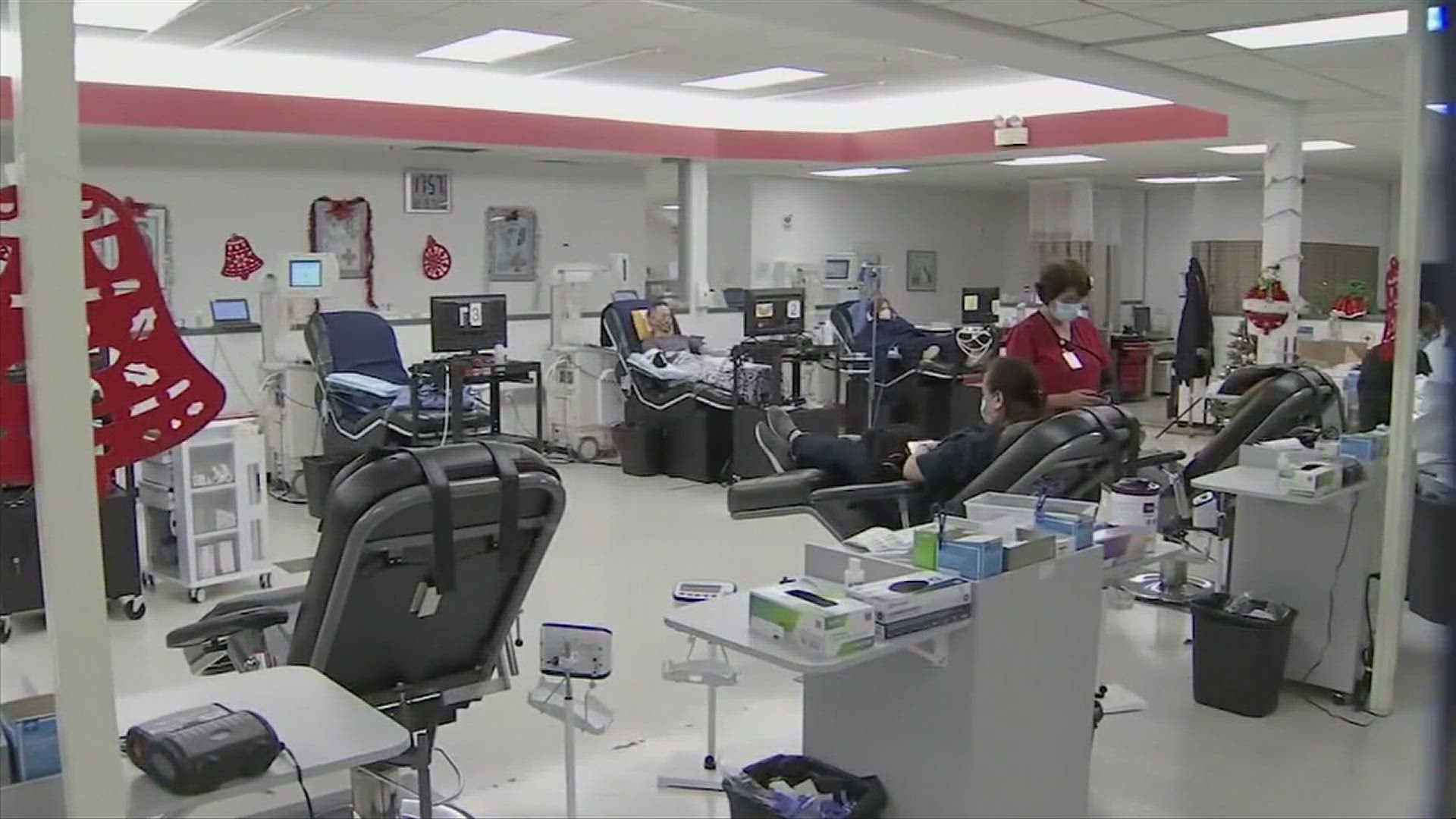HUNTSVILLE, Ala. — The Red Cross, Life South, and Blood Assurance are putting out the call for more blood donors. There's a critical need right now, and although donation centers may be closed during the extreme cold weather, these groups are asking you to roll up your sleeves as soon the ice thaws.
Huntsville Hospital says this week's winter storm has forced LifeSouth Community Blood Centers to close blood drives and centers in north and central Alabama, resulting in a critical blood shortage for our community.
Get more information on blood donation here.
---------------
The need for blood and platelet donations never goes away, but it's especially critical right now after the holidays, with a special need to type O blood. Blood Assurance is asking donors to step up to fill the need.
“December and January are always detrimental for community blood centers due to holiday travel, frigid weather, and illnesses, such as the flu,” according to J.B. Gaskins, CEO of Blood Assurance. “Blood Assurance has faced some enormous challenges in the weeks leading up to the new year, including supplying a large quantity of additional blood units to hospitals in Middle Tennessee, treating patients with injuries sustained during the deadly tornadoes.”
This month marks the 54th anniversary of National Blood Donor Month. President Richard Nixon proclaimed January 1970 as the first National Blood Donor Month to pay tribute to blood donors and encourage new donors to join. Donors who donate through Blood Assurance can schedule an appointment at www.bloodassurance.org/schedule, calling 800-962-0628, or texting BAGIVE to 999777. Beginning Friday, all O-negative, O-positive, and platelet donors will receive a $20 e-gift card as a token of appreciation for donating. The incentive runs through January 2. Donors may also receive a fleece blanket acknowledging them as a blood donor.
Recent changes to screening questions for all blood donors mean that gay and bisexual men can now donate blood. All potential donors, regardless of gender or sexual orientation, are now asked the same health and risk assessment questions. As a result, the donor pool has expanded as people who were previously excluded now have the opportunity to donate.

